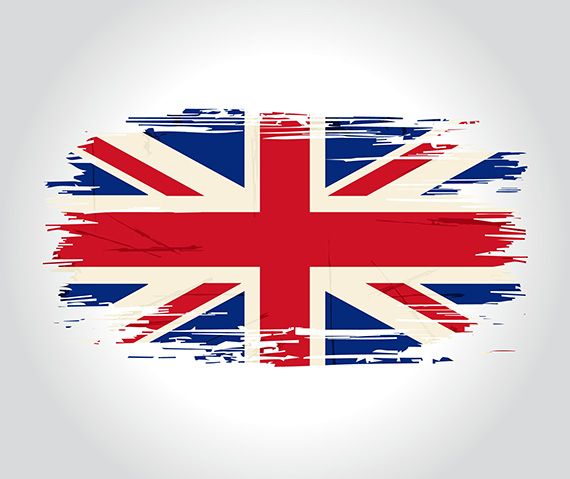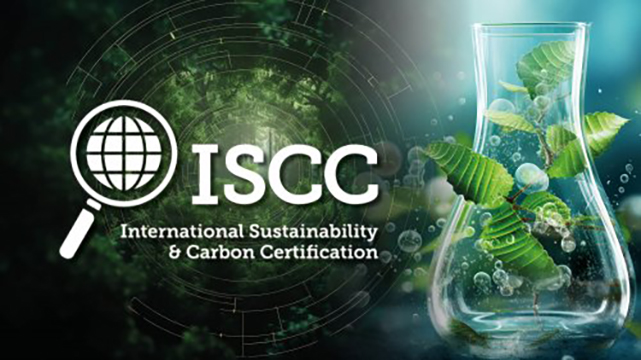More news
- PPG recognised for sustainability progress by FTSE4Good for sixth consecutive year
- Focus on industrial: Powering the energy industry during extreme heat
- Focus on powder coatings: The coatings industry’s transition to PFAS/PTFE-free solut...
- Birla Carbon Plants in USA, Canada, and Spain secure ISCC PLUS Certification
- Songwon awarded platinum level by EcoVadis for its sustainability achievements

Poorna Rodrigo reports from Leicester in the UK, on how the country’s paint and coatings industry is embracing a sustainable future as UK REACH remains under development
The push to secure a better environment is at the forefront of the UK paint and coating sector’s current growth trajectory. From groundbreaking innovations that incorporate plastic waste into coating products, to new ways of minimising paint waste and creating aesthetics, the industry is taking sustainability seriously. With 2023 being the year when the European Sustainability Reporting Standards (ESRS) have been released by the European Union (EU) and when the International Sustainability Standards Board (ISSB) released its own global standards, it is time to take a green approach.
The British Coatings Federation (BCF) is underpinning this work, planning to launch a net zero roadmap for the UK coatings sector. “It will include an initial calculation of a net zero emissions baseline, examine what measures need to be taken to reach Net Zero by 2050, and also provide a resource pack and toolkit for members, especially SMEs, to take the necessary steps,” BCF Public Affairs Manager David Park told PPCJ. “Members will look at ways to improve the circular economy by looking at materials used and how to recycle more waste,” he said.
Innovations will be of critical importance in this work. For example, Beckers Group, the Liverpool-based branch of a Swedish company, is running a pilot to incorporate plastic waste into paint, said a spokesperson. “This includes our ongoing collaboration with Dutch circular economy technology developer BioBTX, where we are partnering with them as they move towards the commercialisation of their production process.” It also includes projects where it directly incorporates r-PET (recycled polyethylene terephthalate) into paints. The company is continually assessing incorporating circular economy raw materials (bio-based and recycled) into paint, validating the impact of this work via lifecycle analysis. It is also investing in developing UV/EB (electron beam) cured paints for coil coatings, having commercialised one product for an unnamed client, arguing the technology’s carbon footprint could be half of competing products [1]. The company is now addressing procedures to manage “the end-of-life phase of coil coating paint,” he said.
Elsewhere, Gareth Hayfield, Head of Research & Technical Development at Dorset, southwest-England-based paint and wallpaper manufacturer Farrow & Ball, told PPCJ that the company during 2022 and 2023 has transitioned all its wall paints to trace volatile organic compounds (VOC), meaning only background levels are emitted. Mr Hayfield, said Farrow & Ball has been building on longstanding sustainability work, switching from solvent-based to water-based paints as long ago as 2010.
In March 2023, the company launched a ‘Dead Flat’ paint range, used on both walls and trim. Its high durability, resistance to burnishing and ease of cleaning means that it preserves good looks for longer, delaying repainting, saving resources. The name ‘Dead Flat’ reflects how “creating truly durable matte finishes has long been a challenge in the decorative paint industry,” said Hayfield. He said the product is the company’s most matte finish ever at 2% sheen, produced after more than five years of development. The breakthrough, he said, was an ingredient from a renewable resource, evenly distributed through the paint film. Combined with the other components, it gives the paint better overall performance and enhanced opacity. These ingredients (which the company is not revealing) create microscopic irregularities in the surface to make it uneven, breaking up light refraction at all angles, he explained: “The result is a truly matte finish, even when viewed at very shallow angles. This gives the impression of the colour being even richer and deeper due to the minimal light reflection. It is even more apparent in our darker shades, delivering the fullest expression of colour.”
READ MORE:
PPG completes US$2.7M expansion of powder coatings factory in Sumaré, Brazil
An Englishman’s home is his castle
Such innovations, which feed both demand for aesthetics and sustainability, fuel growth. And London-based market intelligence specialist Euromonitor International says the UK paint and coating market is in decent shape. Senior industry manager, Nick Stene, said home paint (including lacquer and varnish and decorative paint) sales outstripped pre-COVID-19 levels going into 2023, being forecast to reach GBP900M (US$1.1bn) by the end of 2023, up from GBP860M last year (2023), and are expected to hit GBP1.01bn by 2025.
Mr Stene said sales have been fuelled by a boom in house moves brought on by a stamp duty holiday allowed by the UK government between July 2020 and June 2021, a decision that saved homebuyers up to GBP12,500 (US$15,250), stimulating more moves and hence more decoration and renovation, with transactions, according to the Office of National Statistics, peaking at 54% above pre-pandemic rates in June 2021 and into 2022, although inflation and higher interest rates pushed demand back to more than 10% below pre-pandemic levels in late 2022 and beyond. That apart, COVID-19’s creation of “hybrid work patterns also trigger sales, with greater occupancy leading to greater dissatisfaction with wall finishes, greater wear and tear and therefore, a faster redecoration tempo.”
Also, COVID-19’s encouragement of home-based wellness has boosted paint sales, as it has more grow-your-own food, indoor plants and pets: “If the world is beyond control, it becomes emotionally necessary for the home to fill that hole and provide a more nurturing environment to recharge in, and taking control of our living spaces has been part of a wider compensation behaviour that benefitted paint sales,” he said.
Mr Park added that, most importantly, despite the challenges of inflation and a regulatory framework in the making (with the UK REACH system replacing the European Union’s established REACH system), the UK coatings sector stays resilient and resourceful. The UK is not currently in recession (defined as two separate quarters of negative growth) and although growth remains slow (0.3% growth is projected for 2023, says the OECD), the country is currently faring better than some other European countries, some of which have been in technical recession (such as Germany).
That said, “Inflation remains high and although it is falling, the UK rate is higher than many other comparator countries,” he said, adding: “This is hitting consumer bottom-lines and spending. In terms of input inflation, we are finally starting to see raw material prices drop off, which should give some respite.
“Of course, that presumes that the latest growing conflict in the Middle East does not lead to an increase in oil and gas prices, which is possible,” he warned.
As for the new regulatory landscape, with most of its members exporting to the EU, “we will need to manufacture to those standards,” hence, the BCF is following the developments of EU REACH closely. The replacement, standalone UK REACH has still not been settled, with the UK department for environment, food and rural affairs (Defra) accepting that its original proposals would have been too costly and bureaucratic. As a result, transitional registration of substances deadlines has been pushed back two years – to October 27, 2026; October 27, 2028; and October 27, 2030, depending on tonnage and toxicity. The BCF hopes to hear a statement of intent from the government over the coming weeks. “We will then need to take stock of what is proposed. Whatever new system is ultimately decided upon we need to make sure it does not diverge too far from the EU, on the one hand, nor create too much extra bureaucracy for businesses wishing to register substances for use in the UK market,” emphasised Park.
References
For more information, contact Keith Nuthall, International News Services
Tel: +44 (0) 207 193 4888; Email: edit@int-news.net
www.internationalnewsservices.com







